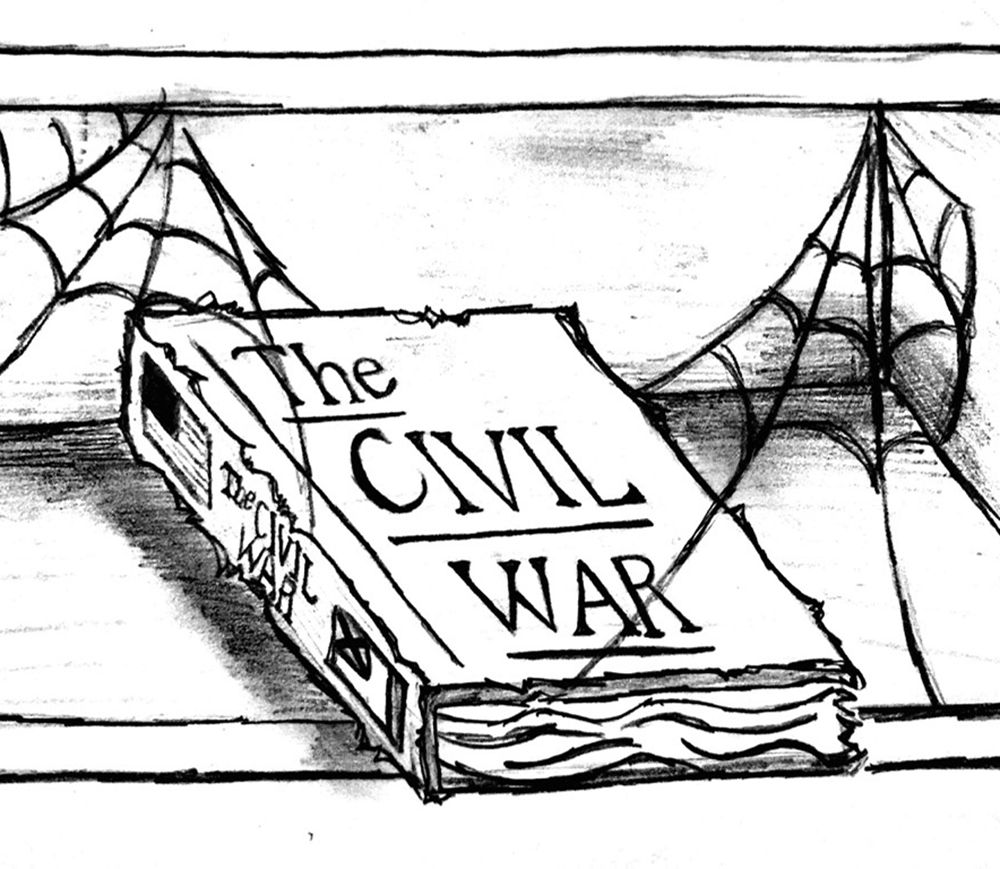 While the 150th anniversary of General Robert Lee’s surrender at Appomattox Courthouse passed this April with little fanfare, the United States has been repeatedly and brutally reminded that our past still haunts us. The shooting of nine South Carolinian churchgoers by a Confederate – flag-waving fanatic in June and the debates over racially biased policing seem reminiscent of a different era. Despite our increasing distance from the four terrible years of our “great contest,” the Civil War remains the root of our political discourse and central to our national identity. Though the Union began fighting in the Civil War to reunite its fragmented states, by the end of the war, it was fighting to create a new nation. The Civil War would become a war for the identity of that nation: its ideals, its character, its soul.
While the 150th anniversary of General Robert Lee’s surrender at Appomattox Courthouse passed this April with little fanfare, the United States has been repeatedly and brutally reminded that our past still haunts us. The shooting of nine South Carolinian churchgoers by a Confederate – flag-waving fanatic in June and the debates over racially biased policing seem reminiscent of a different era. Despite our increasing distance from the four terrible years of our “great contest,” the Civil War remains the root of our political discourse and central to our national identity. Though the Union began fighting in the Civil War to reunite its fragmented states, by the end of the war, it was fighting to create a new nation. The Civil War would become a war for the identity of that nation: its ideals, its character, its soul.
This new national identity would come from many sources, but the most notable one was President Abraham Lincoln himself. Through his public discourse, Lincoln was able to redefine what it meant to be an American. In his first inaugural address before the war began, Lincoln used “the Union” as a synonym for America twenty times, reflecting his desire to avoid war and keep the states united. By July of 1863, however, Lincoln would completely redefine American nationhood in his Gettysburg Address. After three years at the helm of a vastly expanded federal government, Lincoln saw a national identity dedicated to popular sovereignty and backed by a strong central government as the only hope for extending liberty to all men. By the time of his delivery of the Gettysburg Address, Lincoln had replaced the word “Union” in his vocabulary with a more inclusive term: “nation.” He defines this nation as one “conceived in liberty, dedicated to the proposition that all men are created equal.” Referring to “this nation” five times in 272 words, Lincoln hammered home the idea of a new American unity and liberty, one more expansive and inclusive than just freedom from tyranny. America had transformed from “these United States,” as it was known before the war, to “the United States,” as it was known after. By stimulating and redefining American nationalism as one couched in the ideals of liberty for all men, Lincoln would set the stage for the most positive and enduring outcomes of the Civil War: the 13th, 14th and 15th Amendments to the Constitution, which outlawed slavery, redefined citizenship and guaranteed the right to vote, respectively.
While President Lincoln and his supporters were able to unite America and steer it toward a more inclusive future, revisionists after the war almost immediately began to alter the causes and effects of the war to reverse his work. While the North was quick to, in the words of Lincoln, “bind up the nation’s wounds,” bands of partisans fighting for their “Lost Cause” terrorized the post-bellum South. In the immediate aftermath of the war, they sought to preserve through terror what they could not preserve through battle, and so the often-bloody ideological war between equality and racial supremacy continued. Unfortunately for all of the United States the political winds shifted and terror was allowed to run rampant throughout the South. As the memories of war faded, the causes of the war were also revised to omit slavery and racism, so much so that until recently, a Confederate flag flew outside of the South Carolinian statehouse. While the Union may have won the war and brought forth a new nation truly conceived in the idea that all men are created equal, for at least the next hundred years, that nation would only exist for white Americans.
The Civil War brought with it many things: the death of 750,000 soldiers, the economic decimation of the South and post-war violence that continued for the next 100 years. It also brought with it three new Amendments to the Constitution, changing views on race, liberty and national unity and bringing about the liberation of four million black Americans. The direct results of the war place it squarely at the center of the United States historical identity. The war, however, did not bring an end to many of the issues over which we once fought so violently. Debates about racial equality, regional rivalry and the relative power of the federal government, all of which were brought to the forefront during the war, remain hotly contested and unresolved. What becomes clear, especially during the year leading up to the 2016 presidential election, is that, though 150 years removed, arguments about race, inequality, poverty and citizenship continue to form the basis for our political divisions to this day.
Richard Pedersen is a sophomore in the School of Foreign Service.













